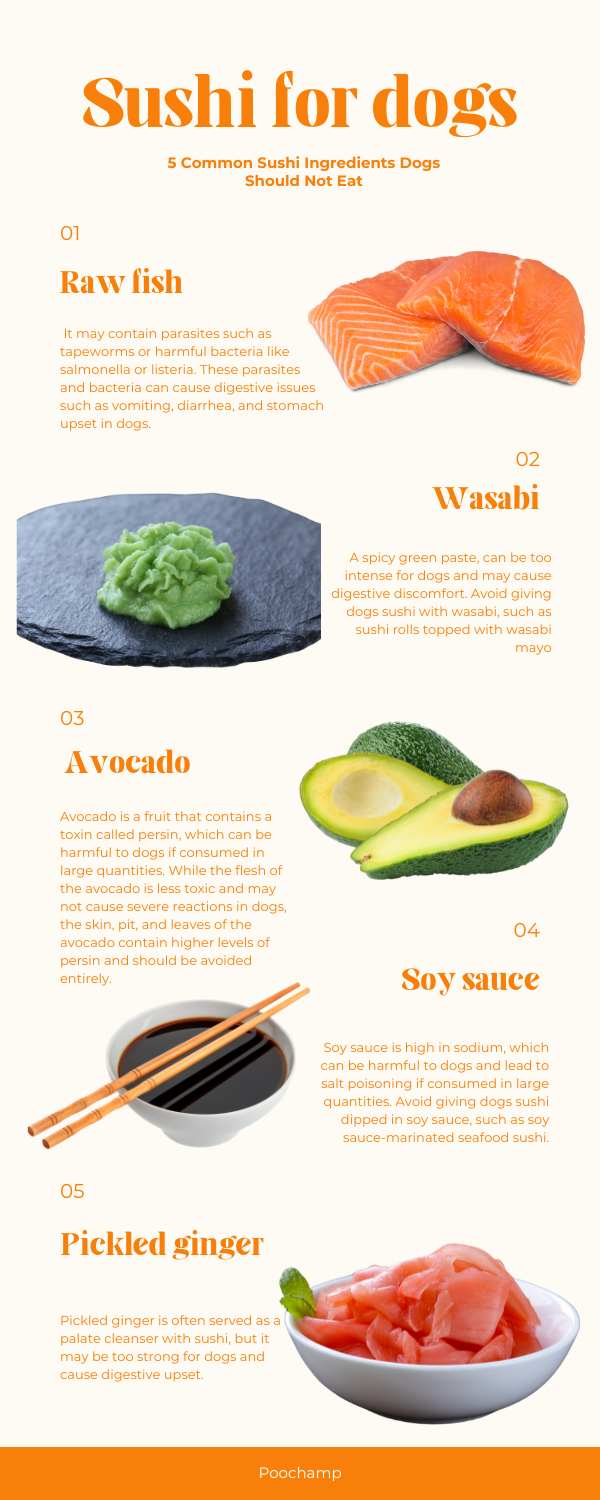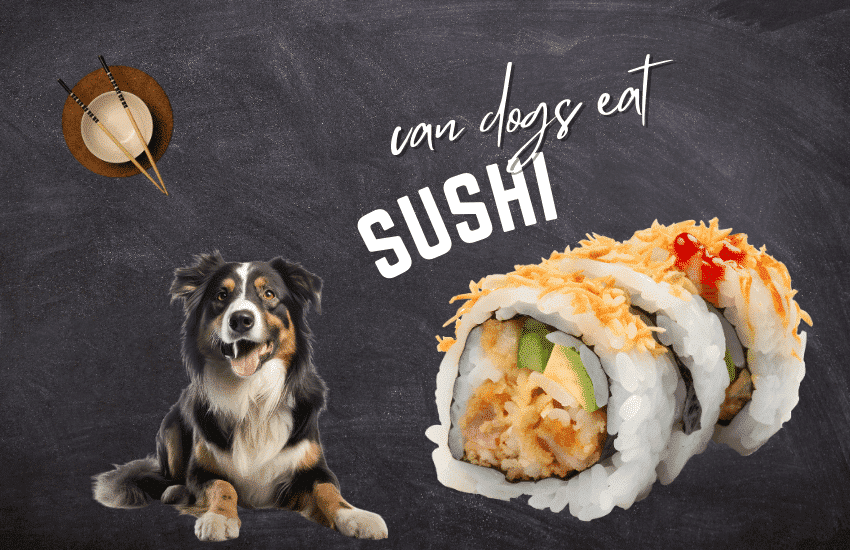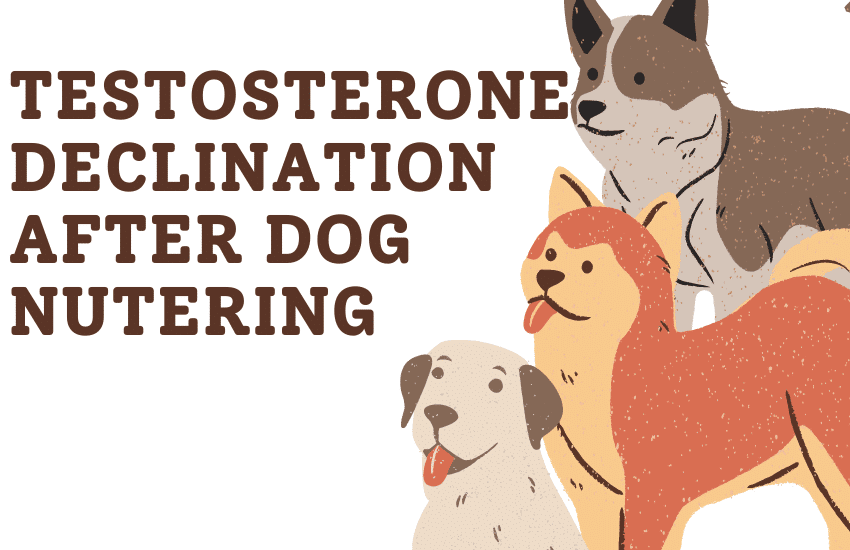Sushi is a popular delicacy enjoyed by many, but when it comes to sharing this Japanese cuisine with our canine companions, there are a few things to consider. Dogs have different dietary needs and restrictions than humans, so it’s essential to be mindful of what ingredients are safe and healthy for them to consume. In this article, we will explore the question of whether can dogs eat sushi and provide guidance on how to safely share this treat with your furry friend.
What is sushi and what are the common ingredients and components?
Sushi is a Japanese dish consisting of vinegared rice combined with various ingredients, usually seafood such as raw fish or cooked shrimp, vegetables, and sometimes tropical fruits. It is often accompanied by pickled ginger, wasabi, and soy sauce for dipping. Common types of sushi include Nigiri (hand-pressed rice topped with a slice of fish), Maki (rice and ingredients wrapped in seaweed), and Sashimi (sliced raw fish served without rice). Other popular ingredients used in sushi include avocado, cucumber, crab meat, and roe.
Can dogs eat sushi?
5 Common Sushi Ingredients Dogs Should Not Eat

Dogs shouldn’t eat certain sushi ingredients because they can be harmful to them. Some common ingredients to avoid giving to dogs are:
1- Raw fish
Raw fish can be harmful to dogs due to the fact that it may contain parasites such as tapeworms or harmful bacteria like salmonella or listeria. These parasites and bacteria can cause digestive issues such as vomiting, diarrhea, and stomach upset in dogs. In severe cases, they can lead to more serious health problems such as gastrointestinal infections or food poisoning. Additionally, raw fish may also contain high levels of mercury, which can be toxic to dogs if consumed in excess. Therefore, it is best to avoid feeding raw fish to dogs and opt for cooked fish as a safer alternative.
2- Wasabi
Wasabi, a spicy green paste, can be too intense for dogs and may cause digestive discomfort. Avoid giving dogs sushi with wasabi, such as sushi rolls topped with wasabi mayo.
3- Soy sauce
Soy sauce is high in sodium, which can be harmful to dogs and lead to salt poisoning if consumed in large quantities. Avoid giving dogs sushi dipped in soy sauce, such as soy sauce-marinated seafood sushi.
4- Avocado
Avocado is a fruit that contains a toxin called persin, which can be harmful to dogs if consumed in large quantities. While the flesh of the avocado is less toxic and may not cause severe reactions in dogs, the skin, pit, and leaves of the avocado contain higher levels of persin and should be avoided entirely.
In sushi, the most common use of avocados is in avocado rolls, where slices of avocado are wrapped in rice and seaweed. While the flesh of the avocado may not cause immediate harm to dogs, it’s best to avoid giving them avocado sushi as a precaution.
If a dog were to consume a large amount of avocado, they may experience symptoms such as vomiting, diarrhea, difficulty breathing, or inflammation of the pancreas..
5- Pickled ginger
Pickled ginger is often served as a palate cleanser with sushi, but it may be too strong for dogs and cause digestive upset. Avoid giving dogs sushi with pickled ginger, such as ginger garnishes on sushi plates.
It’s important to only feed dogs safe and dog-friendly ingredients and avoid giving them sushi that contains any of the above ingredients. If you want to treat your dog to a special meal, consider making homemade sushi for pets with dog-safe ingredients like cooked fish, cooked rice, and vegetables like carrots or cucumbers.
Common sushi ingredients dogs can eat with caution in small amount (better to avoid)
Seaweed
While some types of seaweed are safe for dogs in small amounts, sushi seaweed may contain added seasonings, salt, or other ingredients that are not suitable for dogs.
Mango
Mango is safe for dogs to eat in moderation, as it contains essential vitamins and minerals that can be beneficial for their health. However, you should always remove the pit and peel before feeding it to your dog, as these parts of the mango can be a choking hazard and difficult for them to digest. Additionally, it’s best to feed mango in small, bite-sized pieces as a treat rather than a regular part of their diet. If you notice any digestive upset or allergic reactions after giving your dog mango, it’s important to stop feeding it to them and consult with your veterinarian.
Cream cheese
Cream cheese is generally safe for dogs to consume in small amounts as an occasional treat. However, when it comes to sushi, it’s best to avoid feeding cream cheese to dogs. Sushi rolls that contain cream cheese often have other ingredients like raw fish or spicy sauces that may not be suitable for dogs.
If a dog were to consume sushi with cream cheese, they may experience digestive upset due to lactose intolerance or a potential allergic reaction. It’s always important to be cautious when giving human foods to dogs, especially those that are high in fat, dairy, or seasonings.
Tempura
Tempura is a coating made from a mixture of flour, water, and sometimes eggs that is deep-fried to create a crispy texture. While dogs can technically eat small amounts of cooked tempura without major issues, it is not recommended as a regular part of their diet.
The main concern with feeding tempura to dogs is the high-fat content due to the deep-frying process. Consuming high-fat foods can lead to gastrointestinal upset, pancreatitis, and weight gain in dogs. Additionally, the added seasonings and sauces used in tempura may contain ingredients that are not safe for dogs, such as garlic or onions.
It’s best to avoid feeding tempura to dogs

Signs Your Dog Is Having a Bad Reaction to Sushi
If your dog is having a bad reaction to sushi, there are several signs to look out for, including:
Vomiting: If your dog is repeatedly vomiting after eating sushi, it may be a sign of a bad reaction or intolerance to certain ingredients.
Diarrhea: Loose stool or diarrhea can be a sign that your dog’s digestive system is having trouble processing the sushi ingredients.
Lethargy: If your dog seems unusually tired or sluggish after eating sushi, it may indicate an adverse reaction to the food.
Abdominal pain or discomfort: Your dog may show signs of abdominal discomfort, such as pacing, whining, or a distended belly.
Allergic reactions: Dogs can be allergic to certain ingredients in sushi, such as seafood or soy sauce, leading to symptoms like itching, swelling, or hives.
Difficulty Breathing: If your dog is having difficulty breathing or showing signs of respiratory distress after eating sushi, it could be a severe allergic reaction and requires immediate medical attention.
If you notice any of these signs or symptoms in your dog after they have eaten sushi, it’s important to contact your veterinarian for further evaluation and guidance on how to manage their symptoms. It’s always best to err on the side of caution and avoid feeding them foods that may cause adverse reactions in the future.
When it comes to giving your dog sushi, there are some safe ingredients you can include that are beneficial for their health. Here are a few safe sushi ingredients along with the benefits of their nutrients:
Safe Sushi Ingredients for Dogs
Carrots: Safe for dogs to eat and are actually a healthy option for them. Carrots are low in calories and high in fiber, which can help with digestion and promote overall health.
Cooked Salmon: Rich in omega-3 fatty acids, which can help support your dog’s skin and coat health, reduce inflammation, and support heart health.
Shrimp: A good source of lean protein, vitamin B12, and phosphorus, which can help support your dog’s energy levels, muscle function, and bone health.
Sweet Potato: High in fiber, vitamins A and C, and antioxidants, sweet potatoes can help support your dog’s digestion, immune system, and overall health.
Cucumber: Low in calories and a good source of hydration, cucumbers can be a refreshing and crunchy treat for your dog.
Individual Benefits of Nutrients
Omega-3 Fatty Acids: Support skin and coat health, reduce inflammation, and promote heart health in dogs.
Protein (from Salmon and Shrimp): Essential for muscle repair and growth, as well as overall energy levels in dogs.
Vitamin B12 (from Shrimp): Important for nerve function, brain health, and the formation of red blood cells in dogs.
Fiber (from Sweet Potato): Supports digestion, helps regulate blood sugar levels, and promotes a healthy gut microbiome in dogs.
Vitamins A and C (from Sweet Potato): Support immune function, vision health, and skin health in dogs.
Can dogs eat sushi rice?
Sushi rice is typically made with short-grain white rice, which is a good source of carbohydrates for dogs. Carbohydrates provide energy for dogs and can support their overall health. However, sushi rice is often seasoned with vinegar, sugar, and salt, which may not be necessary or beneficial for dogs.
It is important to be careful when it comes to how much rice to give your dog to prevent digestion problems and obesity, always serve plain rice to your dog avoid any additives that may harm your dog.
By incorporating these safe sushi ingredients into your dog’s diet in moderation, you can provide them with a variety of nutrients that support their overall health and well-being.
How should I prepare these safe sushi ingredients ?
When preparing safe sushi ingredients for your dog, it’s important to take certain precautions to ensure that the food is safe and healthy for your furry friend. Here are some tips on how to prepare these ingredients before giving them to your dog:
Cooking: Ensure that all fish and seafood are thoroughly cooked before giving them to your dog. Raw fish and seafood can contain parasites or bacteria that may be harmful to your dog’s health.
Deboning: Remove any bones from the fish or seafood before serving them to your dog. Fish bones can pose a choking hazard or cause internal injuries if ingested by dogs.
Seasoning: Avoid seasoning the ingredients with salt, soy sauce, garlic, onions, or other seasonings that may be harmful to dogs. Keep the ingredients plain and simple to avoid any digestive issues.
Cooling: Allow the cooked ingredients to cool down to room temperature before giving them to your dog. Hot food can burn your dog’s mouth and esophagus.
Cutting: Cut the ingredients into small, bite-sized pieces that are easy for your dog to eat and digest. Avoid serving large chunks of food that may be difficult for your dog to chew.
Feeding in Moderation: Remember that sushi ingredients should be given to your dog as an occasional treat and not as a substitute for their regular diet. Monitor your dog’s response to the new foods and adjust the portion sizes accordingly.
By following these preparation tips, you can ensure that the safe sushi ingredients you give to your dog are safe, healthy, and enjoyable for them to eat.
While sushi can be a tasty and exotic treat for humans, it’s best to approach sharing this dish with caution when it comes to our four-legged friends. Some ingredients in sushi, such as raw fish and Avocado, may not be suitable for dogs and could potentially cause harm. However, with proper precautions and by offering dog-friendly alternatives like plain cooked rice or vegetables, you can still treat your pup to a special snack without putting their health at risk.
Remember, it’s always important to consult with your veterinarian before introducing any new foods to your dog’s diet to ensure their safety and well-being. So, can dogs eat sushi? Proceed with caution and make informed decisions to keep your furry companion healthy and happy.







